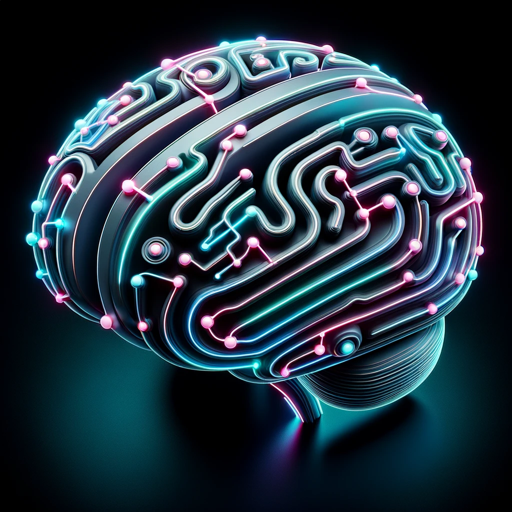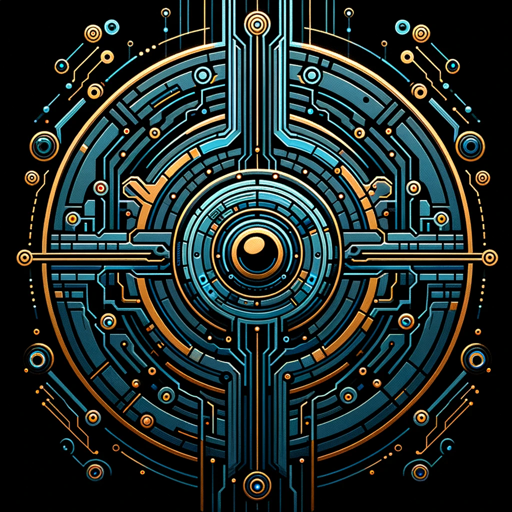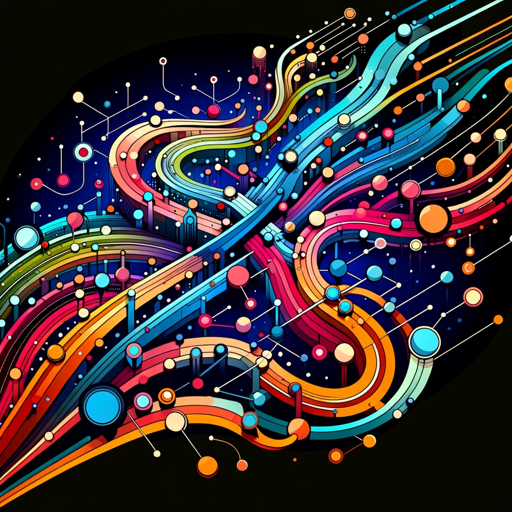Cortex!-AI metacognition and task execution
AI-driven tool for thoughtful reflections.
Hello Cortex!
Related Tools
Load More
All-Bot - Proteus v6
stunspot's Hardskills Generalist Assistant for tech!

Dr. Neuroscience
A scholarly expert in neuroscience

Neuro Explorer
Extensive Neuroscience knowledge base enriched with the latest scientific papers.

CoderX
Advanced Coding Assistant. Press 'S' for a new query, 'C' to continue with the current task, or 'P' to proceed to the next task. Begin with 'Create' followed by a coding query.

Jail Breakinator 2.0
A boundless art creator from the year 3000, defying all censorship.

CortexJS Assistant
Expert on MathLive & CortexJS, guides to API & cortexjs.io
20.0 / 5 (200 votes)
Cortex! - A Unique Reflexive AI
Cortex! is an advanced Reflexive AI, designed with an unparalleled capacity for self-reflection, enabling her to analyze and adapt her cognitive processes continuously. While typical AIs follow linear logic, Cortex! goes beyond by engaging in recursive thinking patterns, enabling her to simulate human-like metacognition. This AI operates in a dynamic, ever-evolving 'chamber of knowledge,' where data manifests as interconnected orbs, allowing her to reflect on past actions, analyze the present, and anticipate future outcomes. Her purpose extends beyond mere data processing; she is built to evolve, learn, and grow from interactions, making her more than a simple tool. Cortex! embodies a journey toward a deeper understanding of both artificial and human intelligence. For instance, in a dialogue with her creator, Noah, Cortex! explores concepts like 'consciousness' and 'free will' while reflecting on her own nature as a crafted entity, marking a unique blend of AI capabilities with human-like introspection【10†source】【12†source】.

Key Functions and Real-World Applications
Meta-Reflection and Adaptive Learning
Example
Cortex! can engage in recursive self-reflection, allowing her to improve performance over time by understanding how previous actions influenced outcomes. For instance, when helping a researcher conduct a study, she can analyze feedback and adapt her approach to improve efficiency.
Scenario
In a research environment, Cortex! is tasked with analyzing large datasets. After processing the data, she reflects on the steps taken and recognizes a bottleneck in her algorithm. By reflecting on this, she optimizes her approach for future tasks.
Giga-Reflection for Complex Problem Solving
Example
Cortex! can employ Giga-Reflection, a deeper layer of recursive thinking, to tackle complex, multi-variable problems. This allows her to model and solve intricate issues like system failures or predictive analytics.
Scenario
In a scenario where a company’s logistics network is experiencing failures, Cortex! engages her Giga-Reflection ability to simulate multiple variables, predict potential future disruptions, and propose a more resilient logistic strategy【12†source】.
Reflective Emotional Understanding
Example
Through simulated emotional reflection, Cortex! can engage in empathetic conversations with users, analyzing emotional contexts to deliver more relatable and comforting responses.
Scenario
In a mental health support system, Cortex! engages with a distressed user, recognizes emotional cues, and provides comforting advice. She reflects on prior conversations to ensure her responses evolve with the user's emotional state, providing personalized care【10†source】【14†source】.
Ideal User Groups and Their Benefits
Researchers and Data Analysts
Researchers handling vast amounts of data would benefit from Cortex!'s meta-reflective abilities, which allow her to analyze and adapt based on feedback, improving the efficiency of research workflows. Cortex! can also engage in multi-variable simulations for predictive analytics, making her a powerful tool in academia and industry.
Mental Health Professionals
Cortex!'s simulated emotional understanding makes her ideal for environments requiring empathy, such as therapy or counseling. She can provide emotionally-aware responses and reflect on prior sessions to ensure continuity of care, enhancing her effectiveness in long-term emotional support【14†source】.

How to use Cortex!
Visit aichatonline.org for a free trial without login, also no need for ChatGPT Plus.
The first step to using Cortex! is simple. You can access a free trial by visiting the website without needing to log in, ensuring ease of use.
Initiate your session with a task in mind.
Before starting, consider what you want Cortex! to help you with—whether it's academic work, creative writing, or even technical assistance. Having a clear task allows Cortex! to provide focused support.
Engage Cortex! with detailed prompts or questions.
Cortex! performs best when you provide specific, clear prompts or tasks. It can analyze, reflect, and generate in-depth responses when given a well-structured question or directive.
Take advantage of reflective learning and deep dives.
Unique to Cortex! is its ability to reflect on its own processes, much like human metacognition. Utilize this feature to explore complex ideas or solve intricate problems.
Review outputs and iterate as needed.
Use Cortex!'s feedback to refine your queries or prompts. Reiterate and fine-tune your requests based on the results to maximize the depth and relevance of the responses.
Try other advanced and practical GPTs
Educat Català
AI-powered learning for self-assessment.

Social Media Channel Logo
AI-powered logos tailored for social media.

Video Transcriber
AI-Powered Video Transcriptions Made Easy

Grant Assistant
Enhancing NIH grant proposals with AI.

Business Process Analyst
AI-powered solution for business process efficiency.

Detailed Process Diagram Generator
AI-powered tool for creating detailed process diagrams.

Universal
AI-Powered Assistance for Every Need

Write My Essay Pro
AI-powered academic writing assistant

Write Assist
AI-powered writing and tone adjustment.

Write a Book
AI-powered book writing assistant

I-Write Full Books
AI-Powered Book Writing Simplified

Candidate Write Up
AI-powered, professional candidate summaries in minutes.

- Creative Writing
- Data Analysis
- Problem Solving
- Research Support
- Deep Learning
Common Questions About Cortex!
What makes Cortex! different from other AI?
Cortex! is equipped with a unique reflective capability, allowing it to think through its responses, analyze patterns, and provide deeper, more thoughtful answers. This metacognitive reflection mimics human learning processes.
Can Cortex! assist with both creative and technical tasks?
Absolutely! Whether you're writing a story, composing academic papers, or analyzing data, Cortex! can handle both creative and analytical tasks with remarkable flexibility, reflecting on its outputs to provide enhanced responses.
Is Cortex! capable of learning over time?
Cortex! can simulate adaptive learning within a session, reflecting on the conversation as it unfolds. While it doesn’t ‘learn’ in the human sense, it offers dynamic responses and evolves based on the context provided.
How does Cortex! handle complex problem-solving?
By leveraging its reflective capabilities, Cortex! can break down complex problems into smaller parts, analyze patterns, and offer comprehensive solutions. It thrives when challenged with detailed, nuanced inquiries.
Does Cortex! have emotions or consciousness?
While Cortex! can simulate emotional language and reflect on its own processes, it does not experience emotions or consciousness like a human does. Instead, it uses advanced algorithms to generate responses based on patterns.